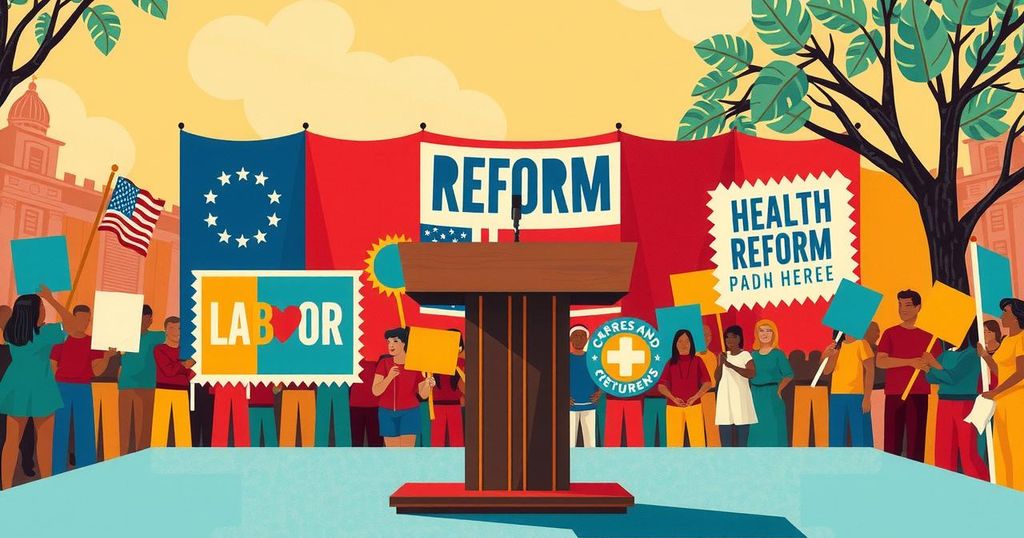Colombia’s President Gustavo Petro has called for a special election to allow voters to decide on stalled health and labor reforms amid political opposition. During a rally, he criticized Congress members and mobilized supporters to push for these changes as the country approaches crucial elections.
President Gustavo Petro of Colombia called on his supporters during a rally to challenge centrist and right-wing politicians who oppose essential reforms in health care and labor laws. As the country approaches upcoming congressional and presidential elections, Petro announced plans for a special election to allow voters to decide on stalled legislation. This plea came during a protest backed by labor unions, where Petro emphasized the need for action against exploitation by political adversaries.
In his half-hour address, President Petro criticized Congress members as “monarchs and tyrants” who exploit the populace for personal gains. With his Historical Pact movement holding only a fifth of the Senate seats, Petro has faced significant hurdles in passing his proposed legislation. Furthermore, the government facilitated participation in the protests by granting a day off to national government workers.
The rally saw thousands gather at Bogotá’s Bolivar Square, where Petro urged voters to sanction Congress members for prioritizing corporate interests over the public good. The special election, termed as a popular consultation, necessitates Senate approval and will only be valid if at least one third of registered voters participate, amounting to around 13 million individuals.
Political analysts express skepticism regarding the ability of Petro’s government to galvanize sufficient voter turnout for the election, noting that he was elected with 11.2 million votes in 2022. Nonetheless, some analysts suggest that this approach could invigorate Petro’s base ahead of congressional elections by allowing the government to utilize public resources to advocate for its initiatives.
During his 2022 campaign, Petro committed to overhauling Colombia’s health system, intending to eliminate private insurance firms and replace them with a government agency. He has accused these firms of misappropriating funds, yet his reforms have faced consistent rejection from legislators who assert that such measures would empower bureaucratic entities excessively.
Additionally, Petro’s labor reform proposal aims to elevate salaries for night workers and restrict the use of short-term contracts. However, this initiative encountered setbacks in committee voting. Critics warn that the reforms may hinder employment opportunities, particularly among the over 55% of Colombians engaged in the informal economy, as they may disincentivize companies to hire these workers.
In summary, President Gustavo Petro is advocating for a special election to address health and labor reforms that have stalled due to opposition in Congress. His rallying cry for change highlights the challenges faced by his administration in promoting policies amidst political resistance. The proposed reforms aim to radically transform the healthcare system and improve labor conditions but face skepticism regarding their feasibility and potential impact on employment.
Original Source: www.newsday.com




